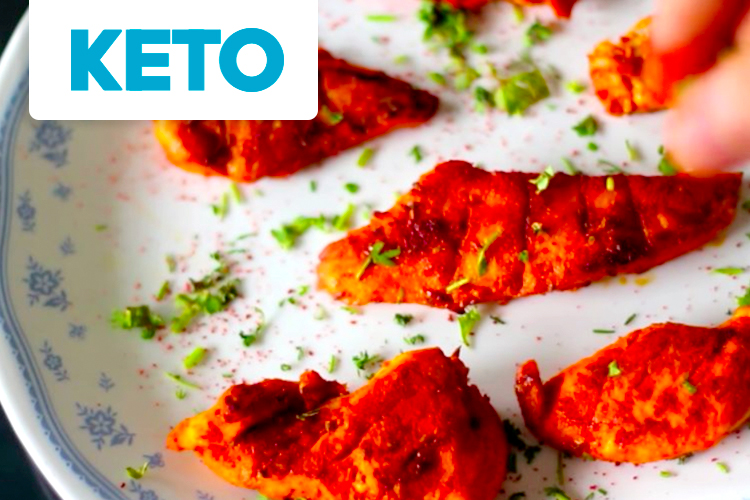How Keto Is Growing In the World’s Fastest Growing Economy
The keto diet is, in 2016, as popular as it has ever been. But the history of the keto diet dates back to much further than most people assume, nor was it used for weight loss the way it is now. The diet surfaced almost a century ago in the 1920s as a treatment for epilepsy, with the Mayo Clinic’s Russel Wilder credited with coining the term “ketogenic diet” after testing it on epilepsy patients in 1921. It was eventually abandoned as advancements were made in medicine, with more effective treatments tested and adopted with time.
Many years later, Jim Abrahams (yes, the one you’re thinking of… if the one you’re thinking of is the one that wrote and produced Airplane!, Police Squad!, and Scary Movie 4) stumbled into the diet while looking for treatments. Abrahams’ son, Charlie, suffered from seizures that would refuse to cease despite going through what seemed like every kind of treatment. The keto diet helped Charlie control his seizures, and Abrahams promptly set up The Charlie Foundation to help families fighting epilepsy, bringing with it a renewed scientific interest into the keto diet.
Not too long later, Eric Kossoff & Jane McGrogan published research that claimed that keto diet usage had increased dramatically internationally, with cultural and religious issues generally not limiting the adoption rate of the diet across the world.
As someone that lives in India, it’s hard to not be slightly cynical towards those results on first glance; specifically, when it comes to adopting a keto diet in India. Not because the keto diet is at odds with our cultural and religious norms, but instead because the term “healthy” can have slightly contradictory connotations in India. To many people here, being “healthy” can mean being well-fed to the point of being obese. Throw in the fact that India’s staple foods & diet is generally high on carbs, and it’s rather unsurprising that the Indian population consistently rank amongst the worst countries when it comes to diabetic issues and cardiovascular diseases.
This contradiction also has a historical backdrop –– the fact that India happens to be one of the highest ranking countries with children suffering from malnutrition. Famines have been an unfortunate recurrence in our history, the worst of which were, more often than not, man-made. For instance, the last widespread famine in India occurred in 1943 when Winston Churchill diverted food from starving Indians in Bengal to well-supplied soldiers in Europe during World War II, resulting in the death of over 3 million people. When members of the then-British Indian government sent requests to Churchill to release food stocks for India, Churchill’s only response was to ask why Gandhi hadn’t died yet. It is important to note this because it is under these extreme conditions that the majority of modern-day India’s ancestors grew up in. Therefore it is relatively unsurprising to see people use “well-fed” and “healthy” interchangeably –– especially in present-day India, with thousands moving up into the middle class, living and eating comfortably, armed with more disposable income than ever before.
And yet, despite all of this, going to the gym has become so ubiquitous in urban India that Indian stand-up comedians are talking about going to the gym in their routines. Bangalore, the city I’ve spent a majority of my childhood in has seen more gyms pop up across the city than ever before. This sudden change hits even closer to home than you’d think –– I’ve got a 65-year old in my family that’s well into his retirement who is currently training to run a marathon –– if you told me that was going to happen 10 years ago, I’d have laughed at you. It is in this rapidly changing environment, that the keto diet seems to be finding a foothold in urban India.
Everywhere I go in India people are on wither the Keto or Gluten-free. https://t.co/xaA8wladQD
— Aparna Jain (@Aparna) October 12, 2016
So, how is the keto diet becoming popular? While it’s hard to pinpoint one factor that’s played a role in its growth, all roads seem to lead to the Internet.
For instance –– Gautam John, a lawyer and former entrepreneur, told FactorDaily that keto Reddit threads were helpful in his research, and this could be part of a larger trend. Reddit features a “DesiKeto” subreddit (Desi = South Asian) and a “VegetarianKeto” subreddit; both of which are obviously very pertinent to Indian keto dieters. The second one in particular is interesting when you consider the fact that India is known for having a sizable vegetarian population, with the UN Food and Agriculture Organization in 2007 ranked India’s meat consumption per person as the lowest in the world –– India’s total per person at 7 lbs (the United States, for comparison, was 2nd, with 276 lbs.) And yet, the keto diet doesn’t seem to be turning away vegetarians in India. Aniruddha Shankar, a popular keto diet coach based in Bangalore told FactorDaily that a number of his clients were –– despite the high-fat, moderate-protein nature of the keto diet –– strict vegetarians, and they’d made the keto diet work for themselves.
Then you’ve got Indian fitness YouTubers. Lots and lots of Indian fitness YouTubers. YouTubers explaining the ketogenic diet in English and Hindi, sharing their experiences with the keto diet, Indian keto diet plans, you name it. The sheer volume of informative content paired with what seems to be a large audience engaging in this content leads on to the assumption that there’s a lot of people out there that are not just interested, but actively making the keto diet work for them.
So, what does this mean in the long run for India? It’s impossible to say. It’d be remiss to not caveat all this with the simple fact that this isn’t a trend that applies to everyone in India. Then again, it’d be silly of me to assume you didn’t know that India, with its 1.27 billion people and its 22 “official” languages (+ the other 1630 “unofficial” ones) is the sort of place where it’s pretty pointless to make any kind of generalization.
With that said, I think it’s safe to say that India is only scratching the surface when it comes to modern-day notions of fitness. Decade-old traditions and mindsets about what it means to be healthy still exist and will continue to exist –– but they will also continue to change. As India continues to grow, as more people move out of poverty, more of India’s population will invariably go from being under-fed, to being well-fed, and then eventually to the point where they can afford the luxury of being extremely specific about what they eat. India could play an interesting role in not just keeping the keto diet alive, but could allow it to thrive.
And for what it’s worth, that possibility, as an Indian, is weirdly cool. I’d bet none of this was even close to being part of Russel Wilder’s wildest dreams.



